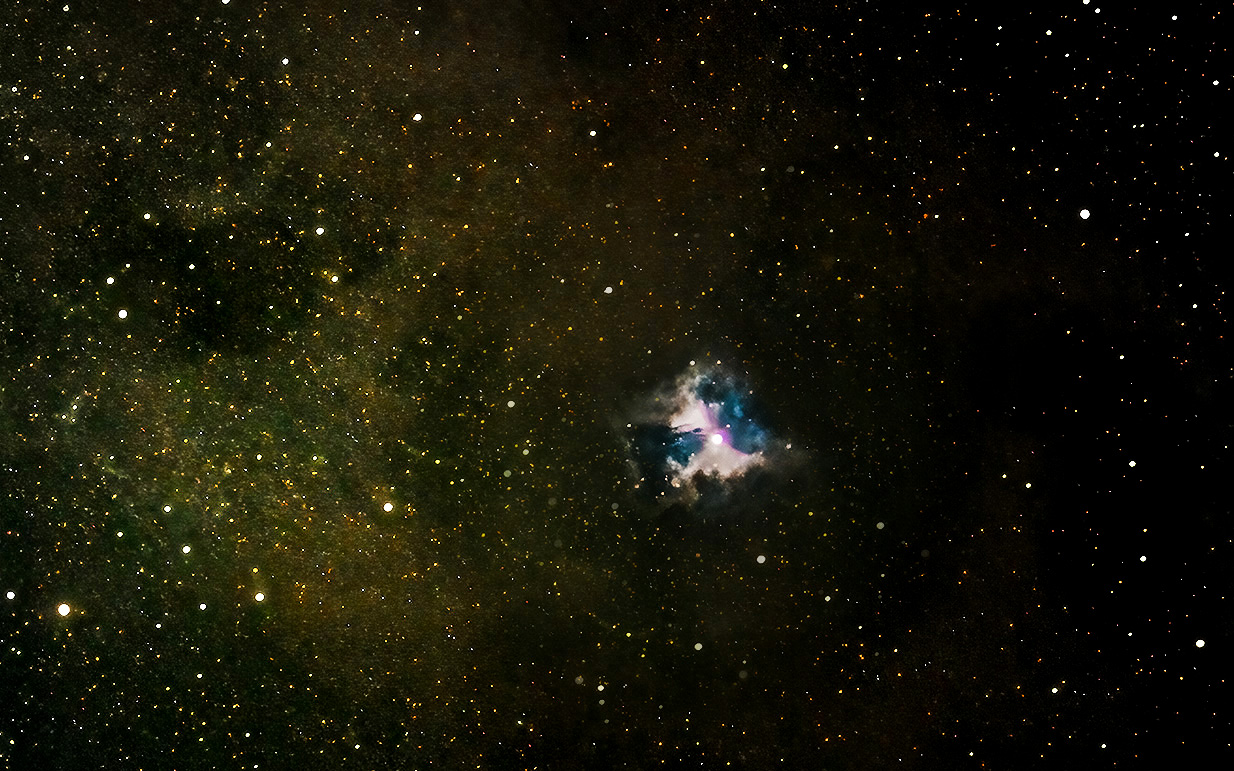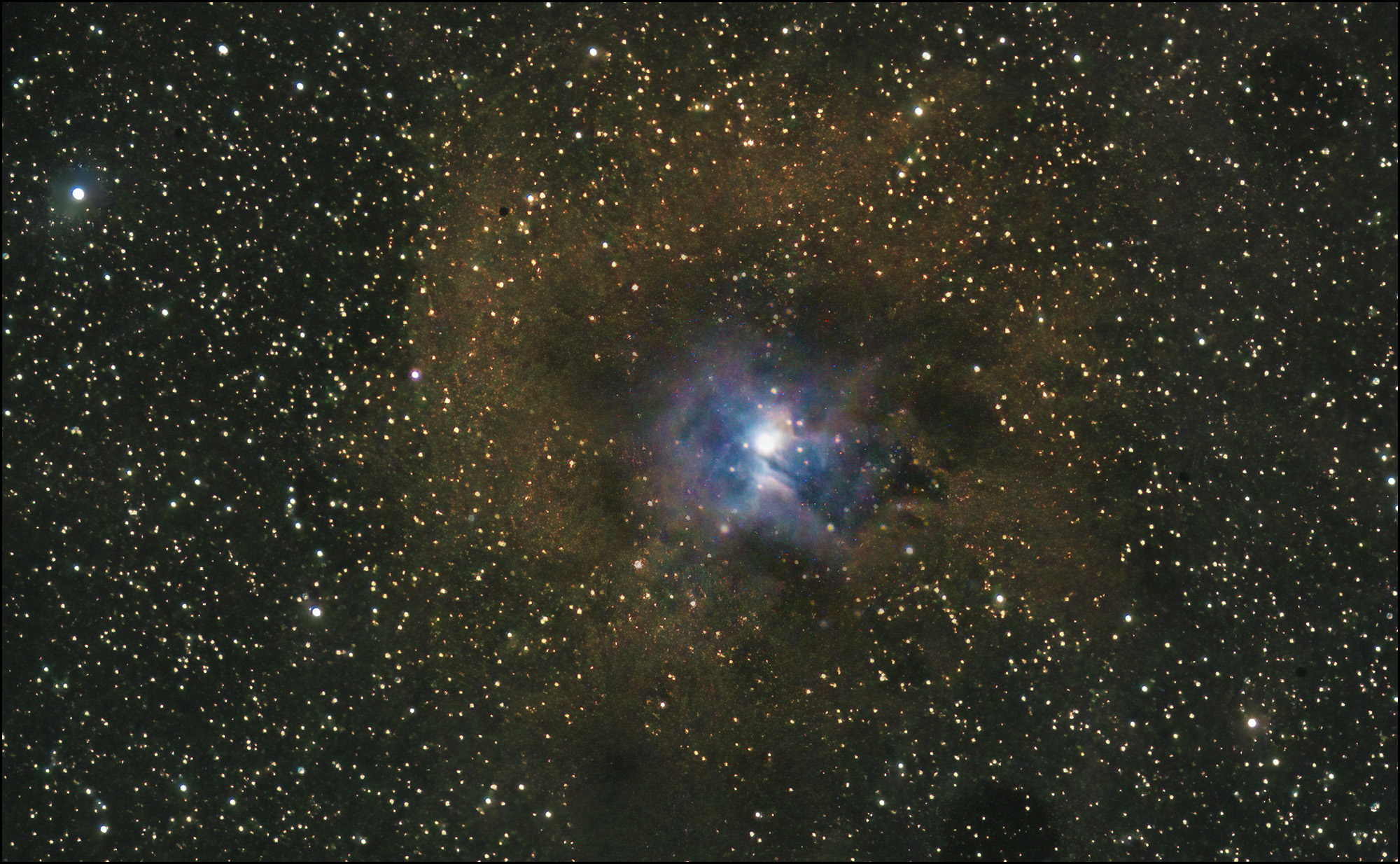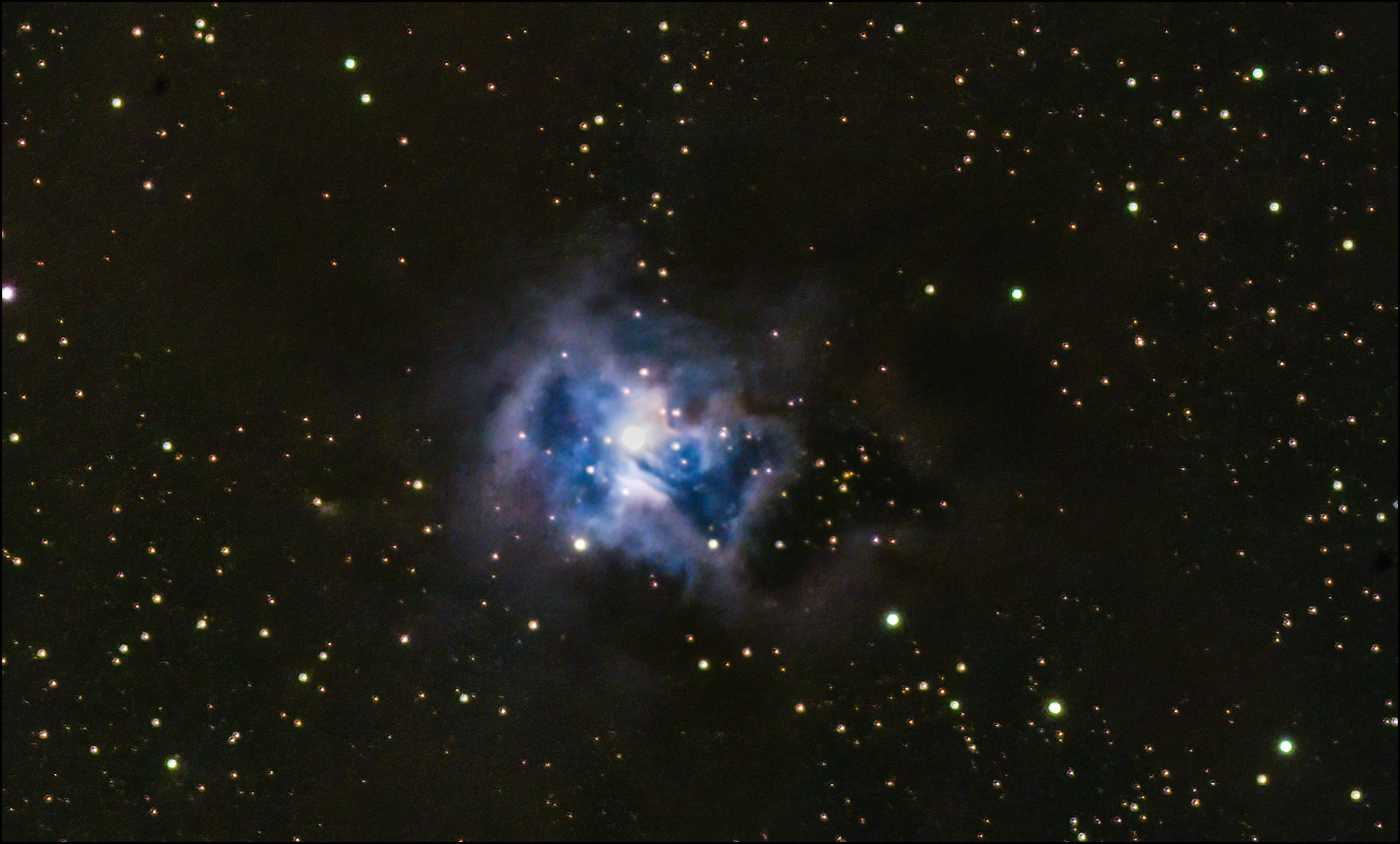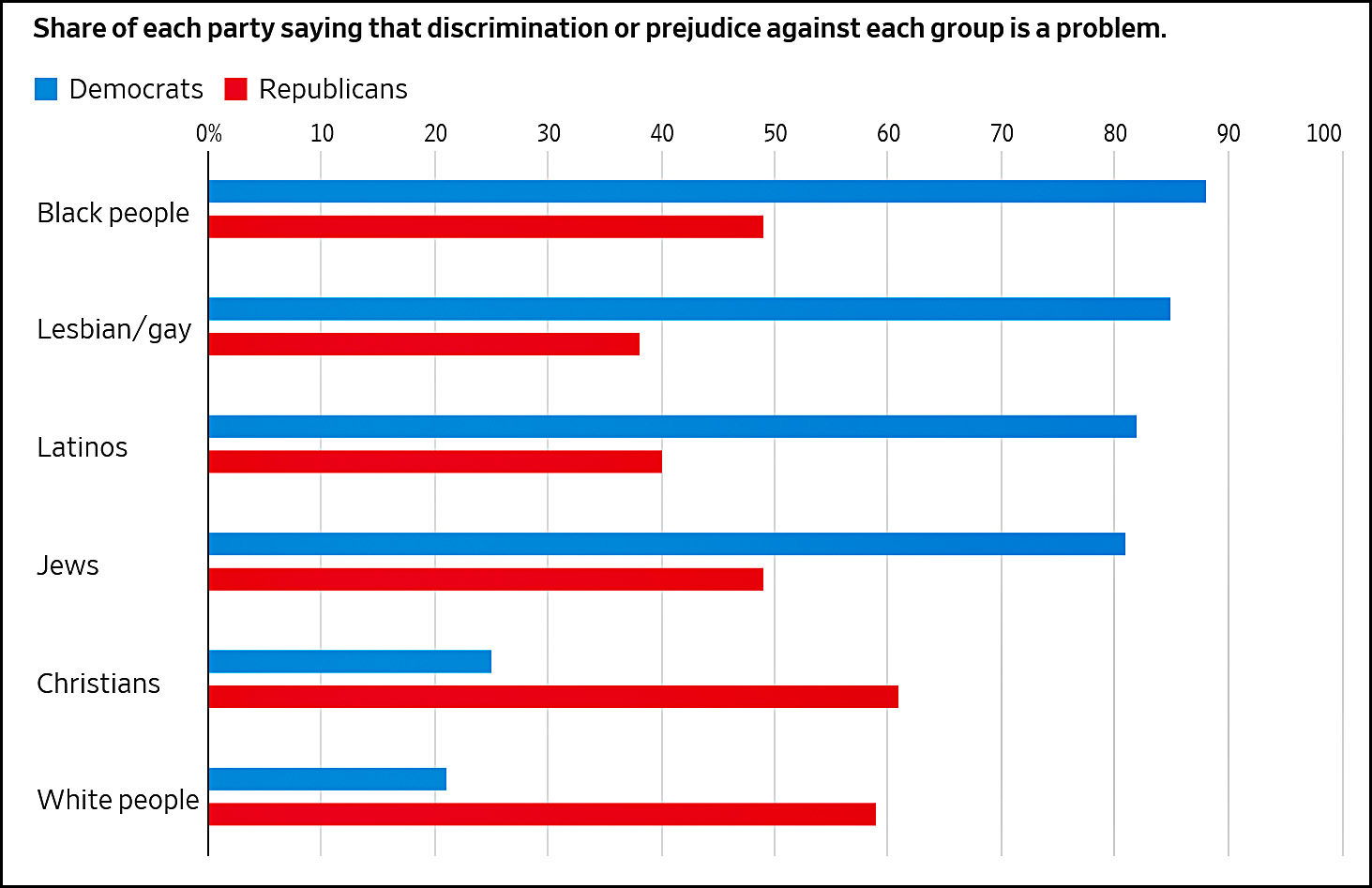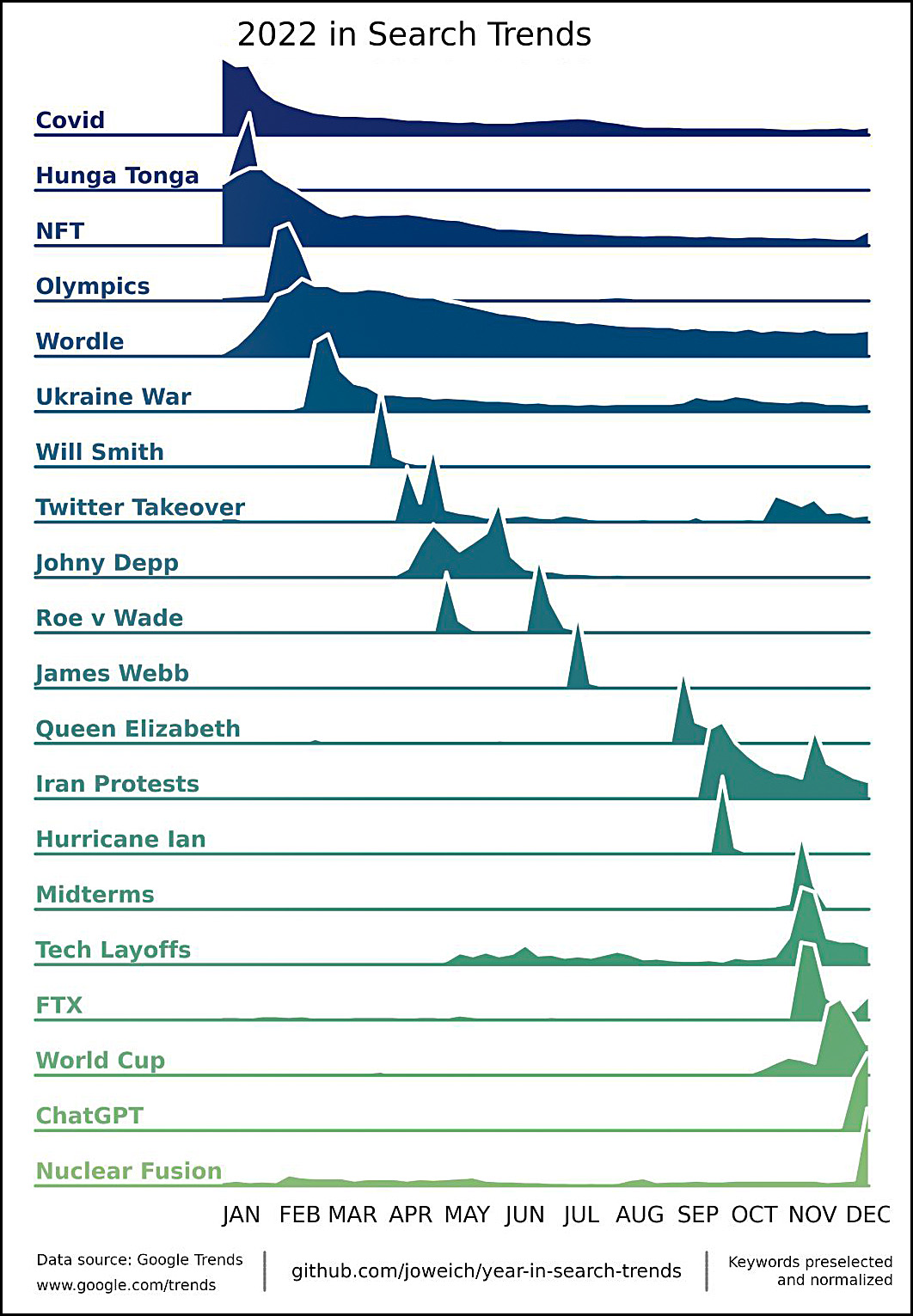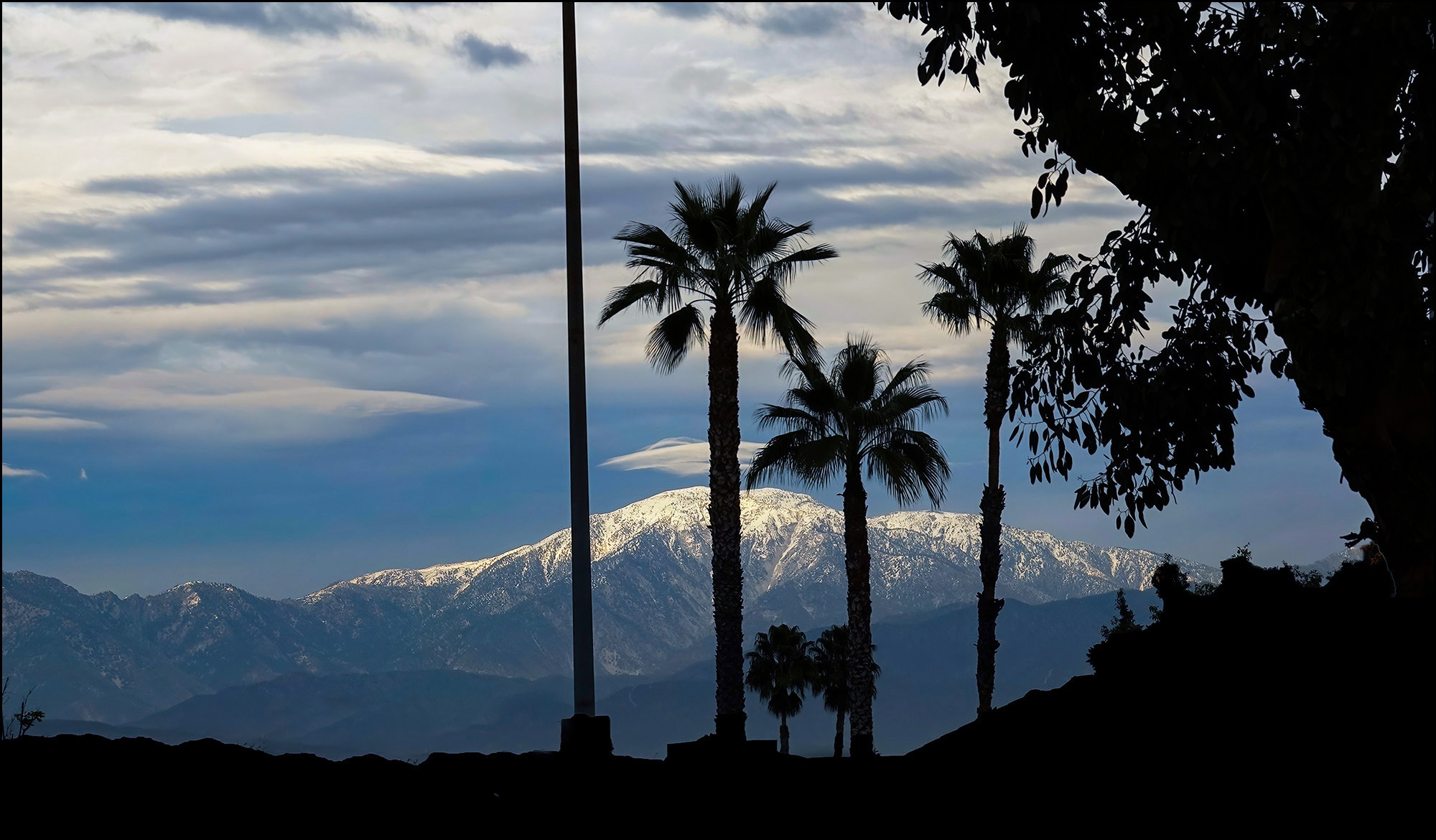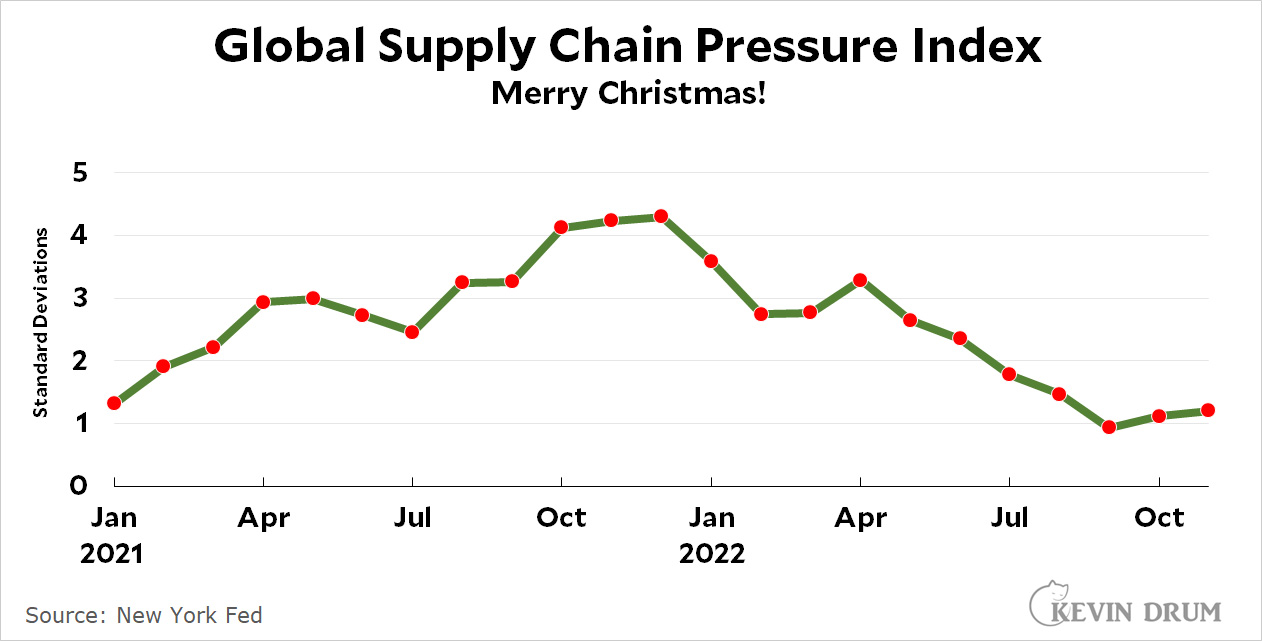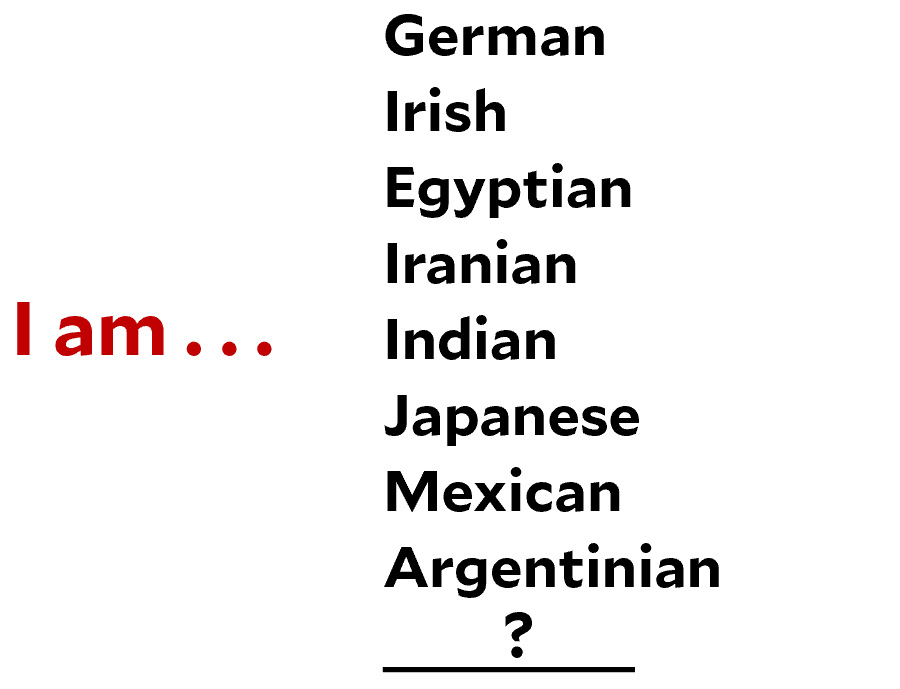After the Andromeda Galaxy, my next astrophotography project was the Iris Nebula. I didn't have any particular reason. It's pretty and a little less well known than some of the other, bigger nebulas.
But there's a sad story behind this. As usual, I did some test runs to figure out what settings I wanted and what exposure to use. Then I was ready to haul everything out to the desert, where I'd do the final run under the best possible conditions.
Unfortunately, as you might recall, my telescope went dead that night. It took me a couple of weeks to fix it, but by then the moon was up. A few days later I went on a short vacation to Virginia, where I fell down and hurt my leg. Then I got better, but the moon was up again so I had to wait. Finally, last Wednesday was a dex night with good weather and the moon safely below the horizon. Off I went.
But I had failed to check the position of Iris after a couple of months, and it turned out to be very low in the sky. Unfortunately, traffic on Interstate 10 had been heavy and I got to the desert late, which made it even lower. But since I didn't realize that, I chose a spot that happened to have a tree nearby. I only got six shots before Iris fell below the tree.
So my plan was to go back today. Yesterday, however, I discovered that the weather report for the rest of the week was terrible, so I made a quick decision to move dex day up to Christmas and head out. Traffic was light, I got up there early, and the sky was magnificent. I had plenty of time to set everything up and get a good six or seven hours of shooting time. Until I realized that . . .
. . . I had left my computer at home. Everything is controlled by the computer—cameras, mount, north pole alignment, guiding—so I literally couldn't do anything. I ended up eating dinner and then going home.
And that's it. The weather is bad this week, the moon is up after that, and by next month Iris will be so low in the sky that it's hopeless. September is probably the next time I'll have genuinely good viewing conditions.
So I'm going to move on. For now, here's a series of images of the Iris Nebula through the end of 2022. The top one is my best and final image. It stacks every shot I took both on Wednesday and on November 9, all handily registered by Astro Pixel Processor. This amounts to 111 images of various exposures taken over five hours.
The middle one uses just the shots from Wednesday. It's a stack of six exposures of ten minutes each.
The bottom one is a test run taken on Palomar Mountain. It's cropped more tightly than the others because I was focused solely on NGC 7023, the central part of the entire nebula. It's a stack of ten 6-minute exposures. I used longer exposures for the other two in an attempt to capture the orange-ish gas that forms the full Iris Nebula. You can see a pretty good image of that here, and I really needed more exposure time to get it. In the event, I was able to get a hint of the orange cloud, but that's all.
You'll also notice that the top image has fewer stars than the others. This is because I finally figured out some good settings for star reduction in APP. This is very handy since the drawback of long exposures is that they produce very intense and unnatural star fields.
